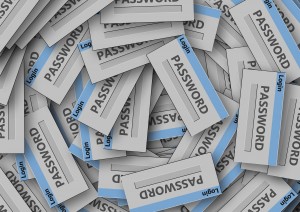 At this point there doesn’t seem to be any question that virtually any network, server, or website can be hacked. After all, if hackers can breach corporate entities, health insurance providers, and even the government, what’s to stop them from hacking your business?
At this point there doesn’t seem to be any question that virtually any network, server, or website can be hacked. After all, if hackers can breach corporate entities, health insurance providers, and even the government, what’s to stop them from hacking your business?
In some ways, small and mid-size businesses are lucky – they don’t have the same target on their backs that larger competitors do. Unfortunately, many smaller businesses are also forced to compromise when it comes to security due to a limited budget. Even though you may not face the same threats as better-known entities, you might be at greater risk.
In order to protect yourself, you need to make sure the components of your security system are up to the task. While password management software is certainly handy in this day and age, what with the onus to create unique passwords for every online account, you need to know if it’s safe to use. How secure is it?
Password management software has become a popular option for anyone looking to cut back on the amount of time spent trying to remember usernames and passwords for their many online accounts. With this type of program, all you have to do is log in to one master account, remember just one set of login information, and you can access every online account, despite the fact that they all have unique username and password combinations.
This is handy for business owners and clients alike, but it may not be entirely safe. If someone is able to hack the master password, they could immediately gain access to absolutely every account, putting your identity and the identities of others at risk. It seems like a pretty big risk, but if you rely on such a program to manage your passwords, don’t despair. They’ve taken steps to ensure the safety of their users.
Just look at the hack of popular password management company LastPass a few months ago. Users were terrified to discover that the site had been hacked, compromising email addresses, passwords, password hints, and other information related to the security of user accounts. LastPass, however, seemed unconcerned with the breach.
Although hackers accessed security data, the company claimed that user identities were not actually compromised, per se. This, they claimed, was because they had taken aggressive steps to protect their data, so that even if it was stolen, it could never be accessed. LastPass stated that their encryption was so robust that even if hackers stole their user data, there was no chance they would be able to crack it. The only chance that information could be accessed would be due to the user error of creating too simple a password.
In light of the breach, the company asked users to change their password information. The situation raised an interesting point, though. Are services for password management secure enough that you would trust your personal data (or client information) to them? If LastPass and others are to be believed, their software is more secure than what the average person could come up with alone. Their stance seems to be that breaches are bound to occur – and they’re ready.
Many such companies do not store user information on their own servers, so even if breaches occur, there is little chance data will be stolen. In addition, the level of encryption used to secure sensitive data is so high that even the best hackers will be stymied should they manage to steal anything. All users have to do is create a master password complex enough that hackers won’t figure it out – so don’t use your birth date or the name of your first pet.
In truth, using a password manager is likely much safer than going the other route and trying to remember a laundry list of unique username and password combinations for every online account. For one thing, you can’t store them all in your head. This means you’re likely to write them down, store them in your phone, or otherwise allow for easy access.
With password management software you need only create and memorize one strong password in order to protect all of your online accounts. If it is discovered, you will definitely be in trouble, but if you use it appropriately, the odds of failure are much smaller than the alternative. This means greater protection for your own online accounts, and potentially the accounts of other users, as well.

